Tsubosaka-dera Temple: The Temple of Sight
Tsubosaka-dera Temple, also known as Minami-Hokke-ji Temple, is one of the 33 temples of the Saigoku Kannon Pilgrimage. Although it is a bit hard to access via public transportation, the temple has been a beloved temple since ancient times.
Tsubosaka-dera Temple
The Temple of Sight
Tsubosaka-dera Temple has long been associated with vision.
There is even a Bunraku story called Tsubosaka Reigenki. According to this story, a blind man, Sawaichi, found out his wife, Osato, went to Tsubosaka-dera Temple every day to pray for a cure for his blindness.
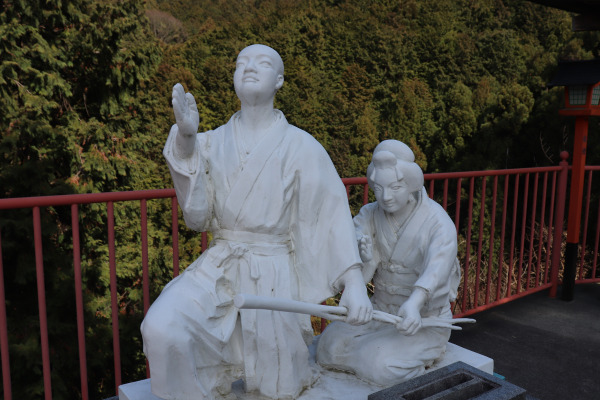
Sadly, Sawaichi suffered from depression and tried to commit suicide by throwing himself off the edge of the temple. His wife lept after him. However, the Kannon of Tsubosaka-dera Temple saved them and Sawaichi regained his sight.
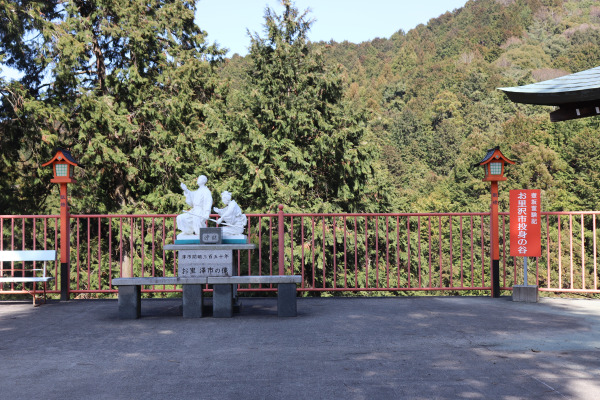
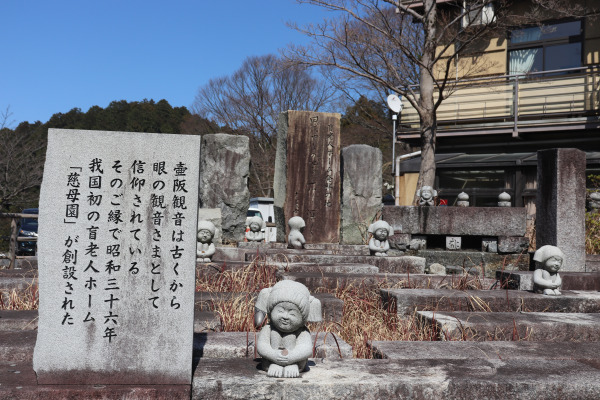
Temple Grounds
According to the founding legend, the origins of the temple date back to 703. A monk called Benki built Tsubosaka-dera Temple.
The temple has been really popular for a long time. Even Sei Shonagon specifically mentions this temple in her masterpiece, The Pillow Tales.
However, because Takatori Castle is located right next to the temple, it was involved in a number of wars throughout history and has been set on fire many times as well. For this reason, there are not very many old buildings in this temple.
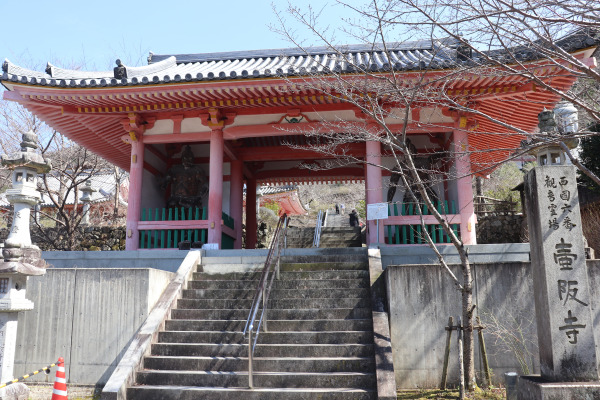
Upon entering the temple grounds, there are many buddha statues everywhere— some significantly bigger than others.
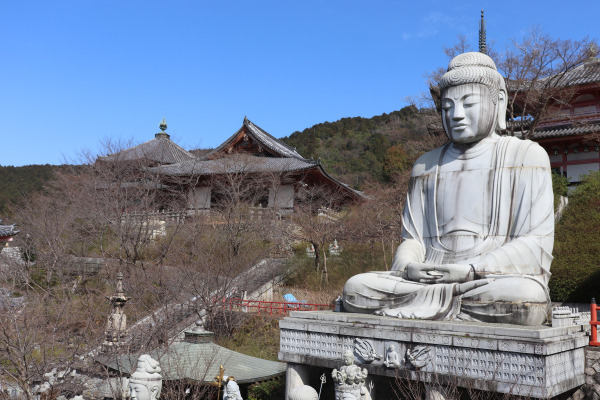
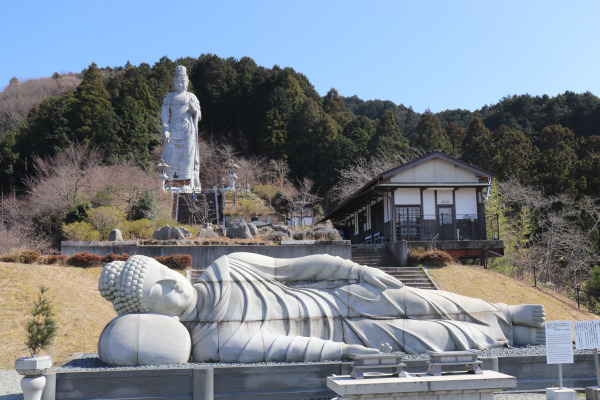
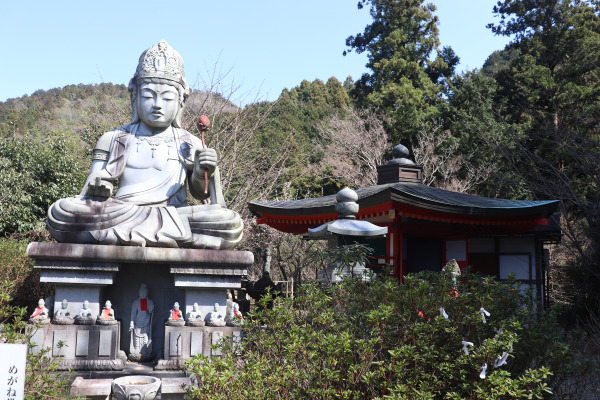
This temple is quite unique as there are many interesting things on the temple grounds, not to mention that the scenery from the temple is really pretty as it is located on the top of the mountain.
There are no souvenir shops nearby, so maybe this is not a tourist spot, but it is certainly a big temple if you compare it to the other temples of the Saigoku Pilgrimage.
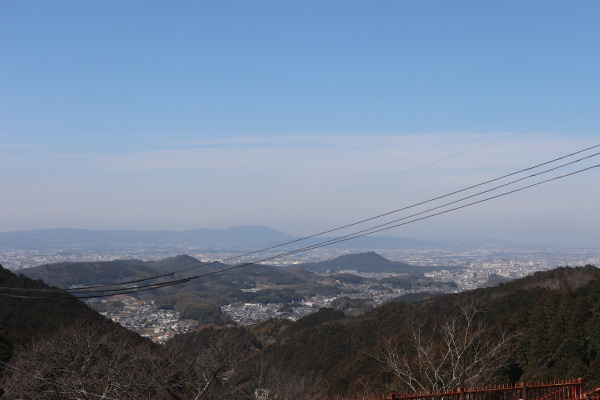
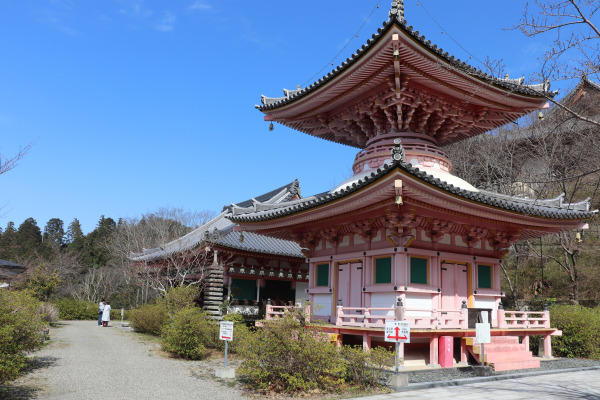
On the top of the temple grounds is a large Hondo (Main hall). Hondo, standing right behind the Raido is an octagon-shaped building.
The principal statue here is the Jyuichimen Kannon Statue, which is always on public display. This is really rare since many of the principal statues enshrined in the temples of the Saigoku Pilgrimage are often only open to the public once every decade or so.
The principal Buddha of Tsubosaka-dera has very prominent eyes, which is also part of the association between this temple and curing afflictions of the eyes.
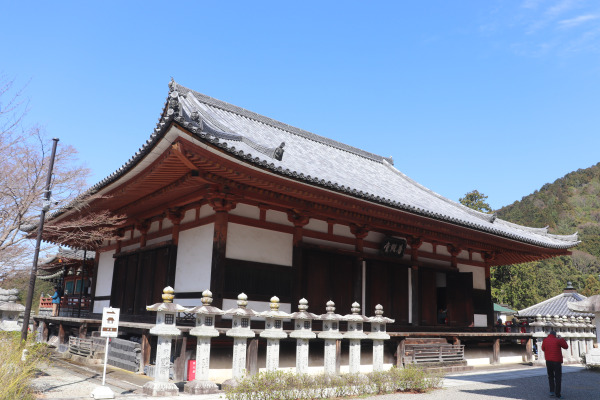
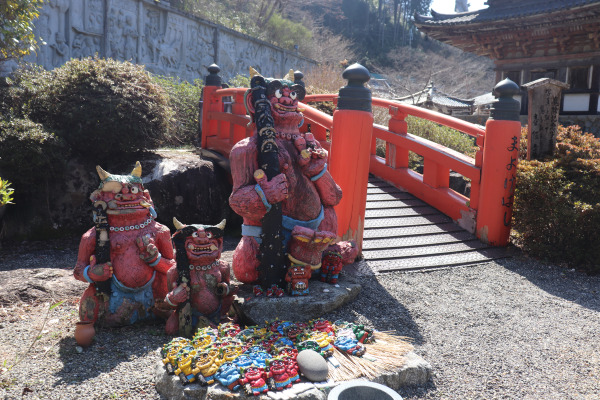
Information: Tsubosaka-dera Temple
| Address |
|
| Website |
|
| Directions |
1 hour away from the Kintetsu Tsubosaka-yama Station. Bus service to the temple is available from Tsubosaka-yama Station, but it’s really sparse! |
| Hours |
N/A
|
| Admission |
Free
|
| Note |
Takatori Castle is located right next to Tsubosaka-dera Temple. It takes almost a whole day to hike Takatori Castle, but it is really exciting to explore the mountain castle and historic temple in one day! |
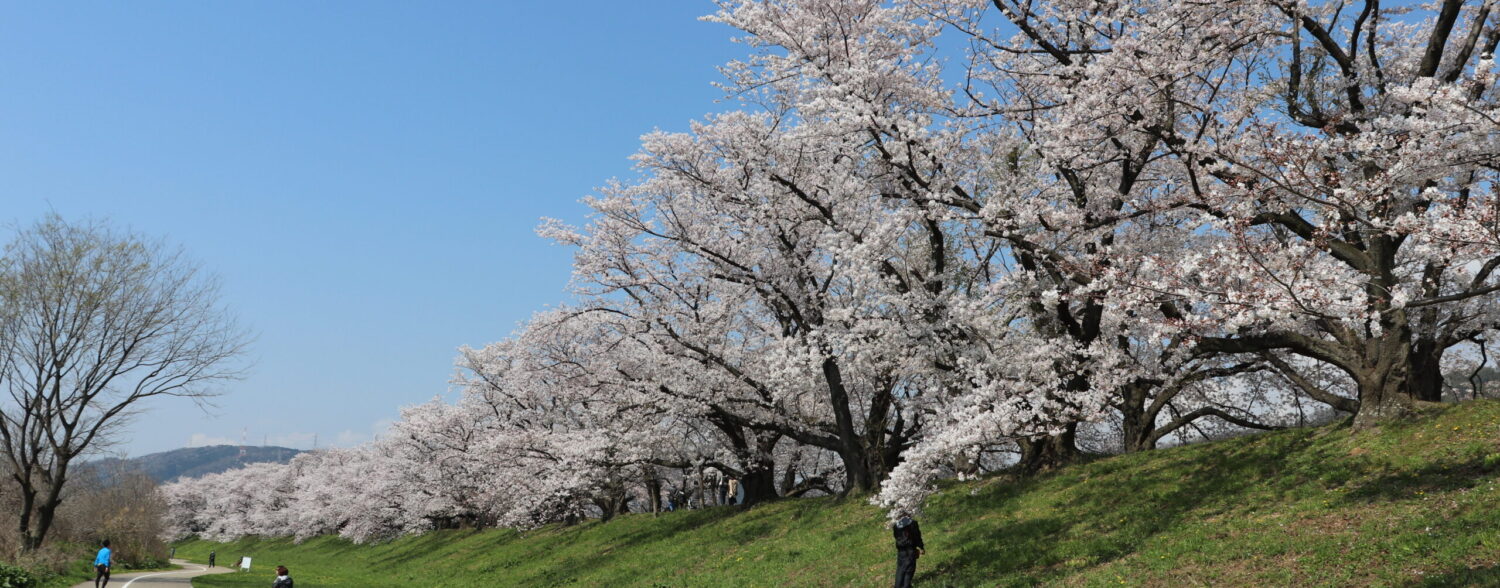
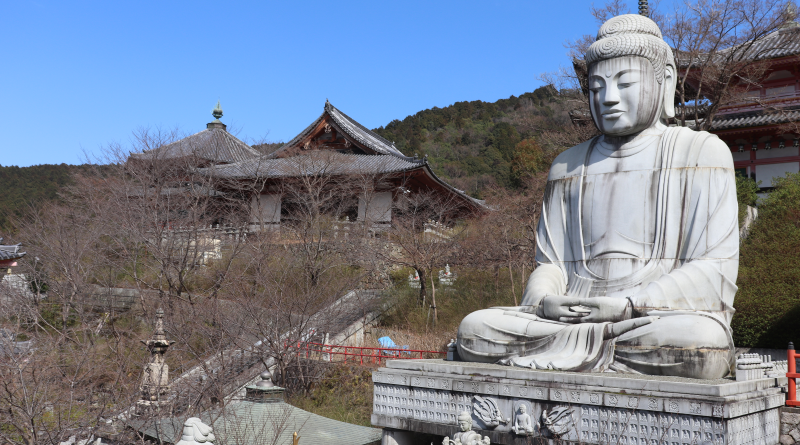
Leave a Reply